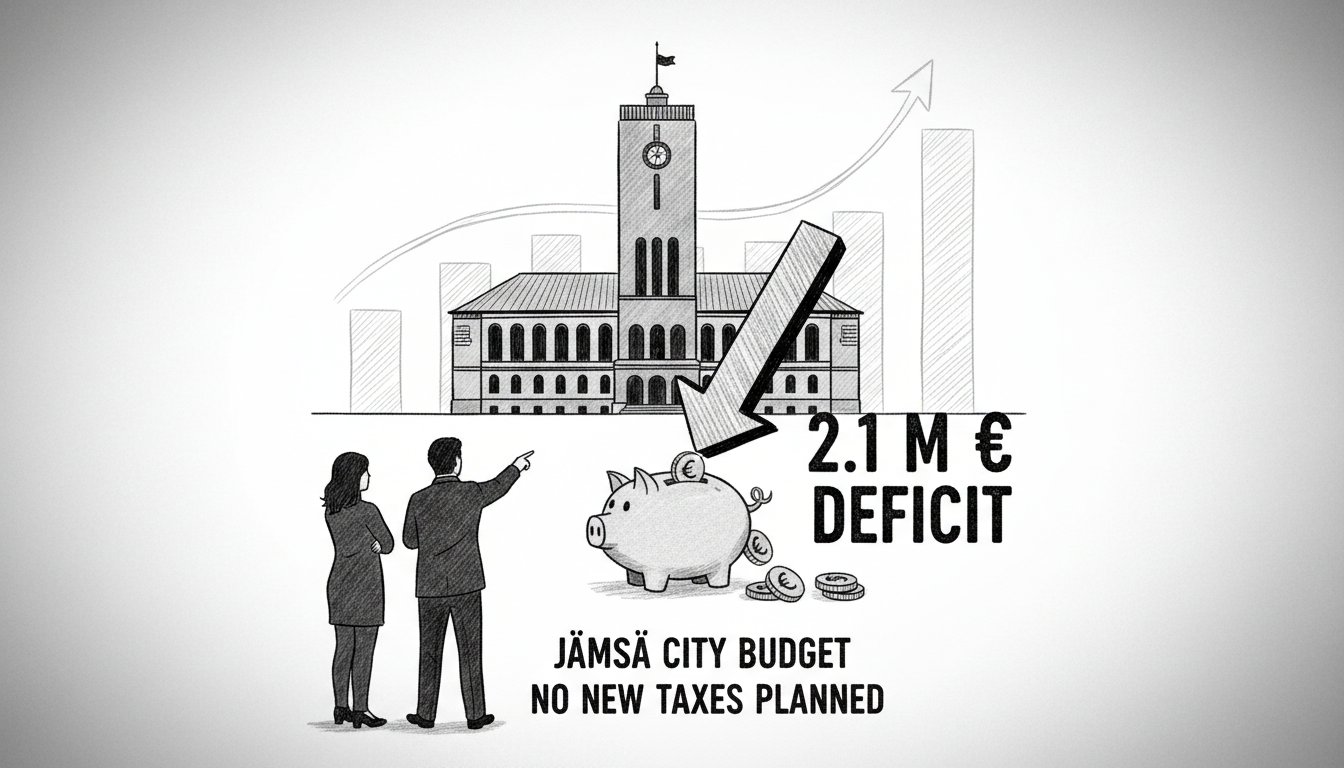The city of Jämsä in central Finland faces a challenging financial situation with its latest budget proposal showing a 2.1 million euro deficit. This comes despite the city achieving better-than-expected results in recent years, having underspent its budget by three million euros over the past three years.
City Consortium Service Director Vesa Urtti expressed confidence in overcoming the projected shortfall. He stated that the city has consistently performed better than budgeted and believes they can reach a balanced result despite the current deficit projection. The current year's budget shows a surplus of approximately 2.12 million euros after the second budget adjustment.
Urtti described this year's budget estimate as conservative, noting that not all expenses were reduced as much as they potentially could be in reality. This suggests the final outcome might be more favorable than initially projected. The budget proposal for the coming period does not include tax increases, indicating the city aims to manage its finances without additional burden on taxpayers.
Finland's municipal finance system operates within a framework where cities must balance their budgets while providing essential services. Jämsä's situation reflects broader challenges facing many Finnish municipalities dealing with demographic changes and economic pressures. The city's ability to consistently outperform its budget projections suggests strong financial management practices.
For international readers, it's important to understand that Finnish municipalities have significant autonomy in taxation and service provision. They face similar challenges to local governments worldwide – maintaining service quality while managing costs. Jämsä's approach of conservative budgeting with actual outperformance represents a pragmatic strategy in this context.
The city's financial trajectory shows a pattern of careful management. While projecting deficits in budget proposals, the actual results have consistently been better than expected. This pattern suggests the city employs cautious financial planning while maintaining operational efficiency. The absence of planned tax increases indicates confidence in existing revenue streams and cost management.
What does this mean for Jämsä residents and businesses? The maintained tax levels provide stability, while the city's track record of beating budget projections offers reassurance about municipal services continuing without disruption. The conservative approach to budgeting creates room for positive surprises rather than unpleasant adjustments later.
The real test will come in implementation. Can Jämsä continue its pattern of turning projected deficits into balanced results or even surpluses? The city's leadership appears confident, but economic conditions and unexpected expenses could challenge even the best-laid plans. For now, the approach seems to be working, with the city demonstrating it can manage its finances effectively despite challenging projections.

